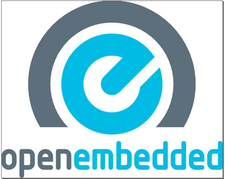OpenEmbedded
CeBIT Open Source 2011 - Project Presentation OpenEmbedded
ByDuring CeBIT 2011 open source projects such as OpenEmbedded which supports the building and designing of Linux distributions on embedded devices, will have the opportunity to showcase what is currently in active development.
Short and sweet: How would you describe your project in one or two sentences?
OpenEmbedded supports building and designing of Linux distributions for embedded devices. It is suitable for various kinds of devices like routers, smarthphones, PDAs, settop boxes and many more.
When did the project begin?
2004.
How many active members does the project have?
Around 30 active contributors.
Why was the project created?
The OpenZaurus community could not fulfill all of its requirementswith the so-called buildroot build system and better designed one wasnecessary. This idea brought OpenEmbedded to live.
Why should a CeBIT visitor come to your booth?
At our stand beginners and interested people can get to know what canbe done with OpenEmbedded und they the possibility to talk tocontributor who are with the project for many years. People withknowledge in embedded Linux get the chance to make contacts and/orexchange ideas.
Who do you make your software for?
OpenEmbedded is supposed to appeal to developers wanting toaccomplish a project using embedded Linux. It does not matter howeverwhether this is someones personal pet project or a professional userwishing to control industrial machines using Linux.
Where do you see your biggest current challenges?
The tightrope walk between specialisation - one software for onepurpose - and generalisation - one software serves many needs - is anespecially hard feat in the embedded world. OpenEmbedded tries toconfront this requirement with its highly flexible configuration systemand is still forked in order to gain a better adjustement towardscertain needs. This in turn leads to a lot of redundant work and we arecurrently trying to get the other parties (=projects) involved and solvethe issues together.
If you could hire a full-time project developer now, what problem should he or she be ready to solve?
OpenEmbedded main tool 'bitbake' is in need of a performance upgrade.The project's metadata is growing steadily and bitbake parse activitytakes longer and logner. There are workarounds but they do not solve theproblem once and for all and stand in the way of more useful enhancements.
Under which license is the software currently offered?
The metadata and script are licensed under the MIT license. Softwarethat is used and distributed by OpenEmbedded is licensed under theirrespective F/OSS licenses.
Internet address:
Subscribe to our Linux Newsletters
Find Linux and Open Source Jobs
Subscribe to our ADMIN Newsletters
Support Our Work
Linux Magazine content is made possible with support from readers like you. Please consider contributing when you’ve found an article to be beneficial.

News
-
Linux Kernel Project Releases Project Continuity Document
What happens to Linux when there's no Linus? It's a question many of us have asked over the years, and it seems it's also on the minds of the Linux kernel project.
-
Mecha Systems Introduces Linux Handheld
Mecha Systems has revealed its Mecha Comet, a new handheld computer powered by – you guessed it – Linux.
-
MX Linux 25.1 Features Dual Init System ISO
The latest release of MX Linux caters to lovers of two different init systems and even offers instructions on how to transition.
-
Photoshop on Linux?
A developer has patched Wine so that it'll run specific versions of Photoshop that depend on Adobe Creative Cloud.
-
Linux Mint 22.3 Now Available with New Tools
Linux Mint 22.3 has been released with a pair of new tools for system admins and some pretty cool new features.
-
New Linux Malware Targets Cloud-Based Linux Installations
VoidLink, a new Linux malware, should be of real concern because of its stealth and customization.
-
Say Goodbye to Middle-Mouse Paste
Both Gnome and Firefox have proposed getting rid of a long-time favorite Linux feature.
-
Manjaro 26.0 Primary Desktop Environments Default to Wayland
If you want to stick with X.Org, you'll be limited to the desktop environments you can choose.
-
Mozilla Plans to AI-ify Firefox
With a new CEO in control, Mozilla is doubling down on a strategy of trust, all the while leaning into AI.
-
Gnome Says No to AI-Generated Extensions
If you're a developer wanting to create a new Gnome extension, you'd best set aside that AI code generator, because the extension team will have none of that.

